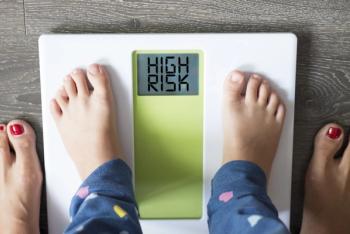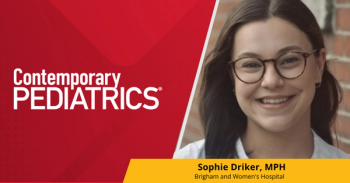
Masks in schools do not increase infection risk
In a simulated back-to-school trial, rate of hand-to-face contact among students wearing face masks did not differ from those without face masks, and risk of infection did not increase.
The required use of face masks does not increase instances of hand-to-face contact or infection risk, according to a recent study.
Face masks have been used to offset the spread of COVID-19, but their use has remained controversial in schools. Research has found that mask use reduces outbreaks and protects the wearer, but concerns have arisen over respiratory and dermatotic issues, as well as psychological, cognitive, and communicative outcomes.
One concern has been an increase in hand-to-face contact among children because of face mask use, spreading infections. To determine this concern, investigators conducted a back-to-school COVID-19 simulation trial analyzing the effect of masks on hand-to-face contact.
Children aged 4 to 17 years participated in the study over the course of 2 days in August 2020. The study’s design team included infectious disease specialists, pediatricians, epidemiologists, schoolteachers, medical simulation experts, and infection prevention and control professionals.
Students who had attended school or other structured learning environment during the 2019 to 2020 school year were eligible for the study. Teachers were eligible through certification by the Ontario College of Teachers. All participants had tested negative from COVID-19 48 hours prior to when the study began.
Participants were assigned randomly into a mask or control group, with grade level for students determined by grade recently completed and by experience teaching for teachers. In the mask group, students brought masks and always wore them with the exception of eating and drinking.
In the control group, students in grades 4 and below did not have to wear masks at all, and students in grades 5 or over did not have to wear masks when maintaining a distance of 2 meters or more. Students were allowed to wear masks if they chose. Teachers in both groups were provided medical masks which they always wore.
During the first day of the trial, students underwent standard back to school procedures, with the addition of wearing masks for the trial group. These procedures were also followed on the second day, with analysis of the outcomes afterward.
Hand-to-face contact was the primary outcome, based on the number of students per hour on the second day. Classrooms were recorded for accurate data. Hand-to-face contact included a hand touching a mouth, nose, eyes, glasses, other nonmucosa parts of the face, central mask, or peripheral mask, along with removing or putting on mask.
The mean age of students was 12.4 years, and almost 49% were female, about 50% were white, and 61% had attended public school in a prior year. There were 87 students in the mask group and 84 in the control group.
No noticeable difference in rate of hand-to-face contact was observed between the 2 groups.Hand-to-mucosa contact was observed as a secondary outcome, with a lower rate among the mask group compared to the control group.
These results indicated that mask-to-face contact did not increase because of mask usage, and that children wearing face masks in schools does not increase the risk of infection.
Reference
Science M, Caldeira-Kulbakas M, Parekh RS, Maguire BR, Carroll S, Anthony SJ, et al. Effect of wearing a face mask on hand-to-face contact by children in a simulated school environment: the back-to-school COVID-19 simulation randomized clinical trial. JAMA Pediatr. 2022. doi:10.1001/jamapediatrics.2022.3833
Newsletter
Access practical, evidence-based guidance to support better care for our youngest patients. Join our email list for the latest clinical updates.






